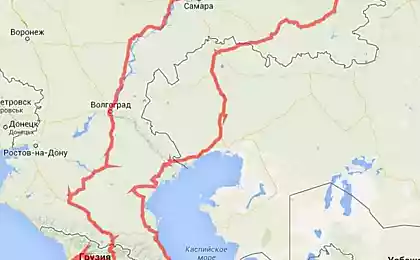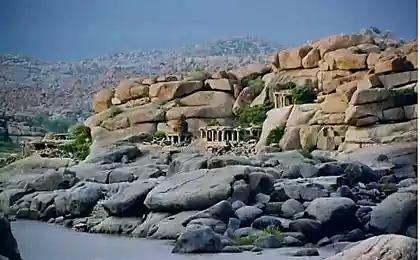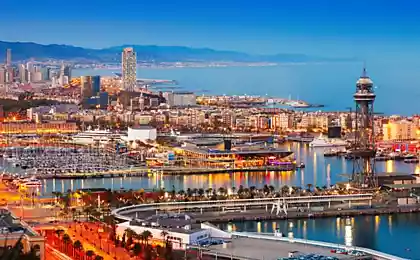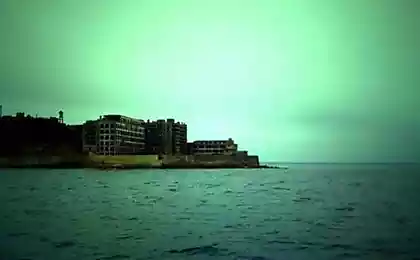1758
Lost Cities
The most famous lost cities from around the world
Machu Picchu, Peru.
The ancient city of Machu Picchu in 2007, received the title of the New Wonder of the World. The town appeared about 1,440 g, and flourished until the mysterious and sudden disappearance of all its inhabitants in 1532 city conquistadors escaped the attack and destruction, but the people somehow left it.
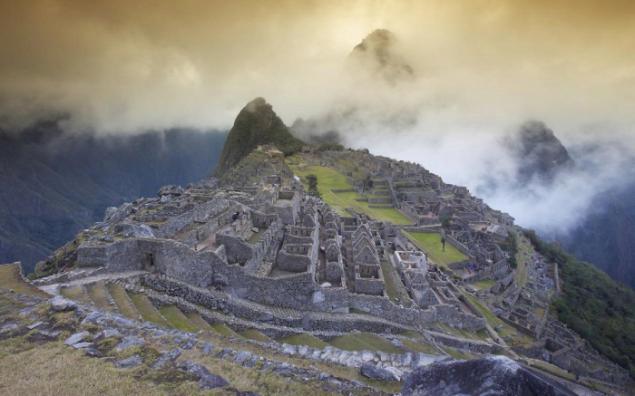
Ctesiphon, Iraq.
In the period from II to VII century Ctesiphon was the capital of the Parthian Empire first and then Sassanian. Come down to our times brick built Ctesiphon and today amaze with its splendor and size.
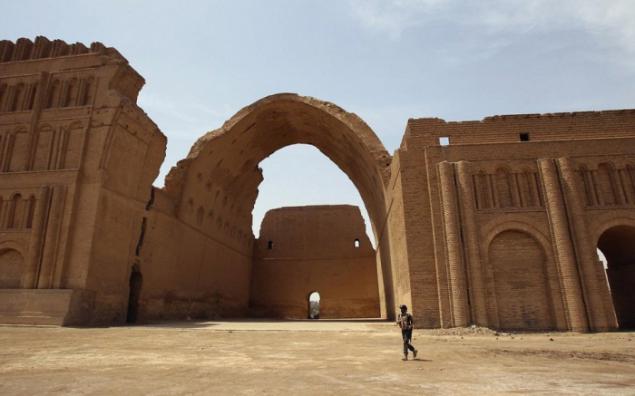
National Park Mesa Verde, USA.
The national park Mesa Verde (Colorado) is full of the ruins of ancient cities that were built in the Anasazi Indians VI-XIII centuries. The largest building in the park is considered a great "Rock Palace", attracts every year more than 700,000 tourists. The city was abandoned by its inhabitants around 1300. The reasons why people left their homes, are still unclear, but it has been suggested that the blame prolonged drought.
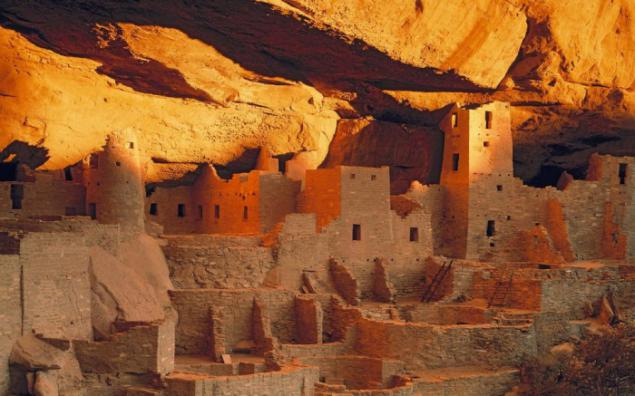
Tikal, Guatemala.
Tikal - it is one of the largest city-states of the Maya. It was built in the VII century BC, and in the heyday of its population reached 200 thousand people. The history of Tikal was full of dramatic moments, and after numerous wars and uprisings of the people finally left him. It happened at the end of the tenth century. Since then, Tikal is a ghost town.
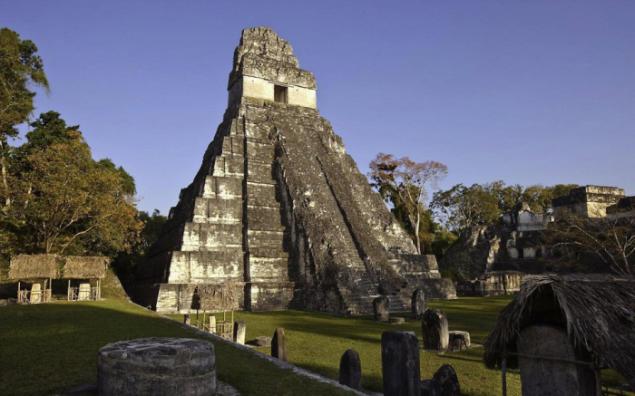
Great Zimbabwe.
Big or Great Zimbabwe ruins known as the ancient city, located on the territory of the South African state of Zimbabwe. According to archaeologists, the city appeared in 1130 and for three centuries was considered the main shrine of the Shona people. Behind the high stone walls of the city can simultaneously accommodate about 18 000 people. Today, the city walls are one of the most amazing monuments of Great Zimbabwe. They are built without any mortar, and their height reaches five meters.
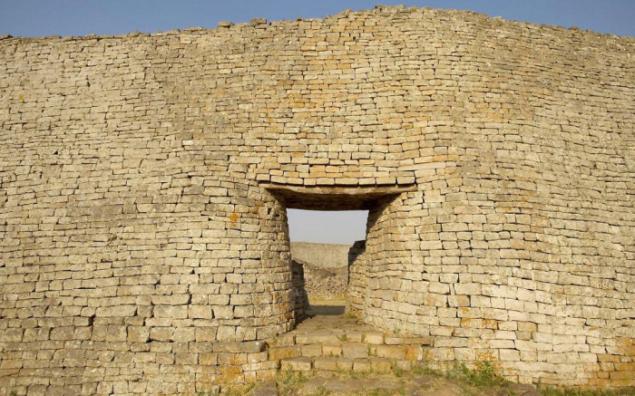
Mohenjo Daro, Pakistan.
Pertaining to the Indus civilization city with a gloomy title Moenjodaro (which translates as "Hill of the Dead") appeared in the Indus Valley in present-day Pakistan, more than four and a half thousand years ago. He is a contemporary of the pyramids of Egypt and one of the first cities in South Asia. The city flourished for nearly a thousand years, but still, in the end, its inhabitants fled. Archaeologists speculate that the reason for it was an invasion of the Aryans.
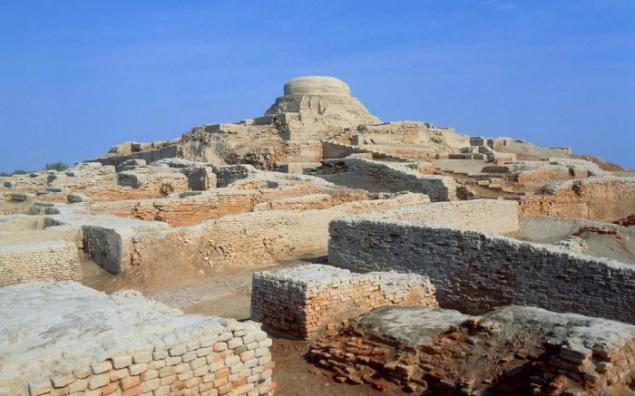
Bagerhat, Bangladesh.
This city stands at the confluence of the Ganges and Brahmaputra, was built in the XV century. During his heyday here operated 360 mosques. But over time, Bagerhat was in decline, and it is almost completely absorbed the jungle. Today, part of the city has been cleared, and tours are available to tourists.
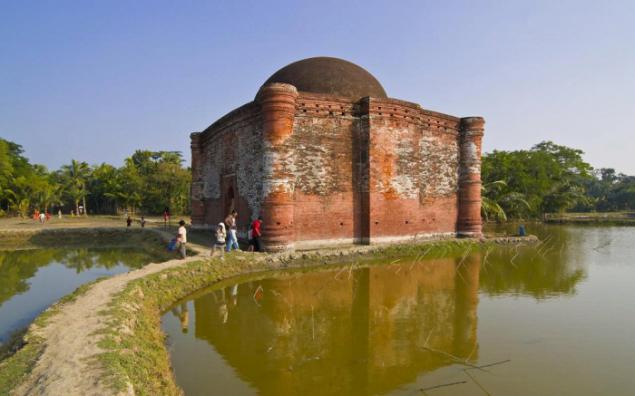
Vijayanagar, India.
Once the capital of the Vijayanagar Empire, the mighty, which occupied the entire south of the Indian subcontinent. Today, the site of the city of Victory (as translated Vijayanagar) is a village of Hampi. True, here and today, in addition to the magnificent ruins are still operating and many Hindu temples, including the famous temple Pampapathi that even older than the Vijayanagara.
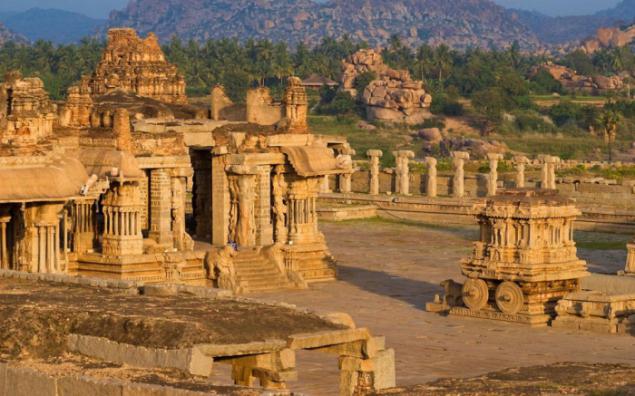
Ani, Turkey.
Ani - the capital of the ancient Armenian kingdom, standing in modern Turkey. Once the population of this ancient city is more than 100 thousand people, and thanks to the abundance of temples, he was known as a city of 1001 churches. To this day we survived the ruins of many Armenian churches XI-XIII centuries and the Seljuk Palace. But all of these sites are in terrible condition - they live the homeless and their territory careless tourists picnics. The authorities did not exercise due diligence to protect this historical monument.
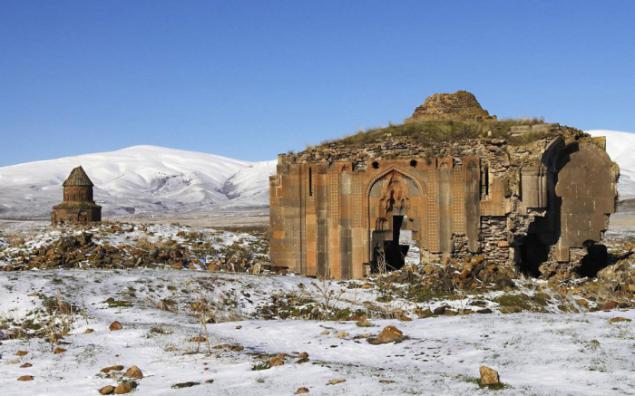
Thebes, Egypt.
The first human settlements on the territory of this city belong to 3200 BC In 2000 BC Thebes lived about 40 000 people, making them the largest city of the time. Status of the biggest cities in the world Thebes able to retain up to 1000 BC Even today the ruins left by its former splendor, dazzling. The most famous monuments of Thebes - the temple of Luxor, Karnak Temple (which is the largest temple complex of ancient Egypt) and the tomb of Tutankhamun.
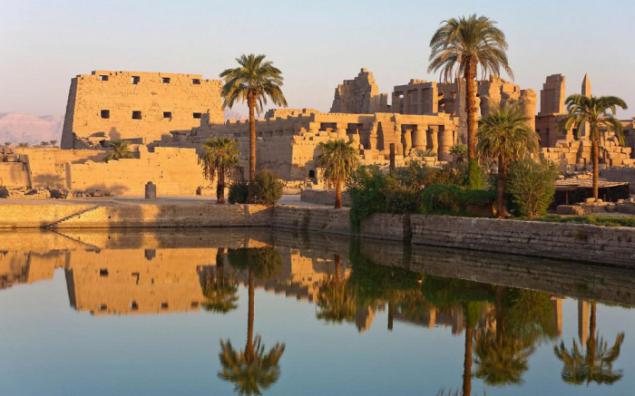
Carthage, Tunisia.
Throughout its long history of Carthage was the capital of the different states. First it was the Phoenician state, which is also called Carthage. In 146 BC and the state and the city have been completely destroyed by the Romans, but pretty soon they themselves Romans rebuilt Carthage again. After the fall of Rome, Carthage became the capital of the Kingdom of the Vandals. The final fall of the great city was in the VII century, when the city was destroyed by the Arabs. But still survived to our time a lot of ruins, mostly from the Roman period.
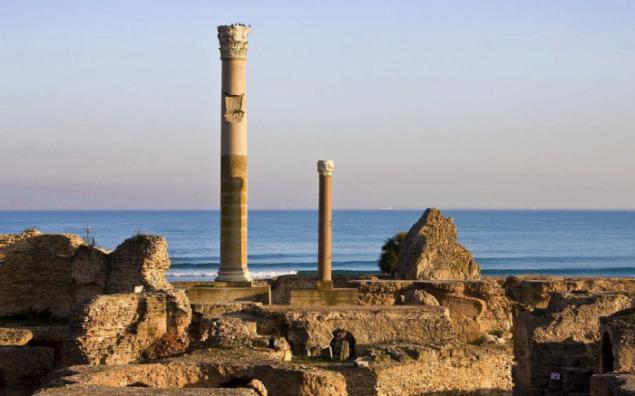
Persepolis, Iran.
The founder of the magnificent city of Persepolis was the Persian king Cyrus the Great. The city was founded around 560 BC For centuries, the city passed from hand to hand, while maintaining its status as the capital and the great city. But during the Arab conquest of Persepolis was completely in ruins. The most famous monument of the city is a huge palace apadana.
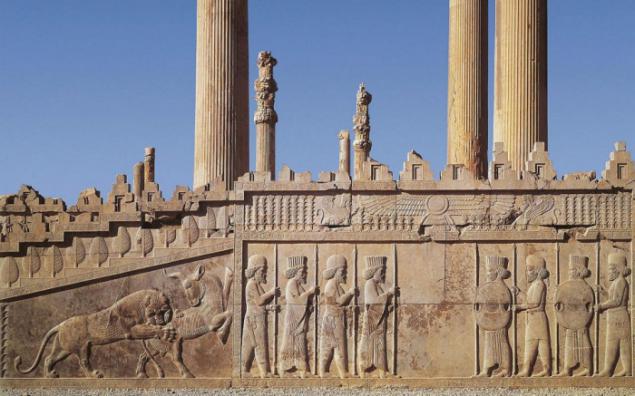
Ephesus, Turkey.
It was in this town in the VI century BC It was built by the legendary Temple of Artemis, one of the seven wonders of the world. The city prospered as long as it was near the sea. But when it is gone far from the city walls, trade gradually faded, and with it disappeared, and magnificent city, leaving only ruins.
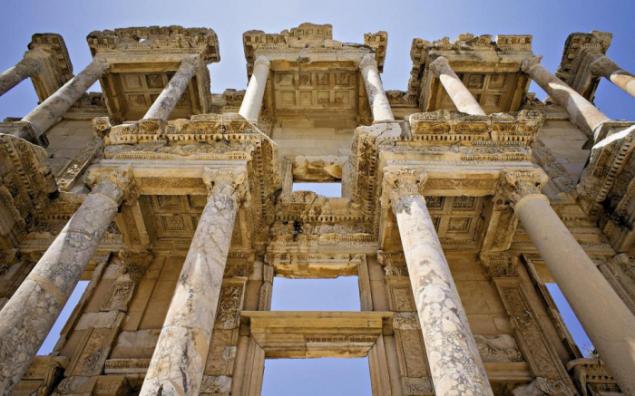
Palenque, Mexico.
In the III-VIII century Palenque had great political and cultural significance to the Maya civilization. Before our time has survived many magnificent stone buildings belonging to 600-800 years, including the Temple of the Sun, the Temple of the Cross and the Temple of the Inscriptions. The city was abandoned long before the arrival of Columbus, probably as a result of inter-tribal wars.
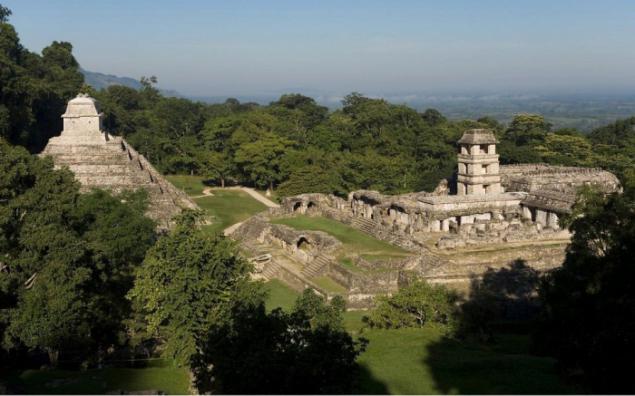
Pompeii and Herculaneum, Italy.
These two died in the eruption of the city are probably one of the most famous cities of the disappeared. When August 24 79 AD It began a catastrophic eruption of Mount Vesuvius, the majority of residents of Pompeii suddenly overtaken by death, and then the city was completely buried under a layer of volcanic ash multimeter. The residents of Herculaneum was more fortunate - many of them had to leave the city before he disappeared under the hot ashes.
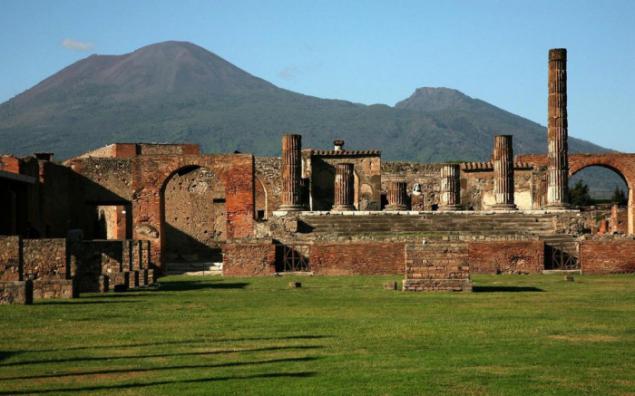
Petra, Jordan.
In the ancient city of Petra stood at the crossroads of important trade routes that brought him untold riches. But over time the Romans mastered the waterway, severely weakened overland trade. Gradually, residents left the city, and it absorbed the sands of the Arabian desert. Today you can see the well-preserved ancient buildings magnificent.
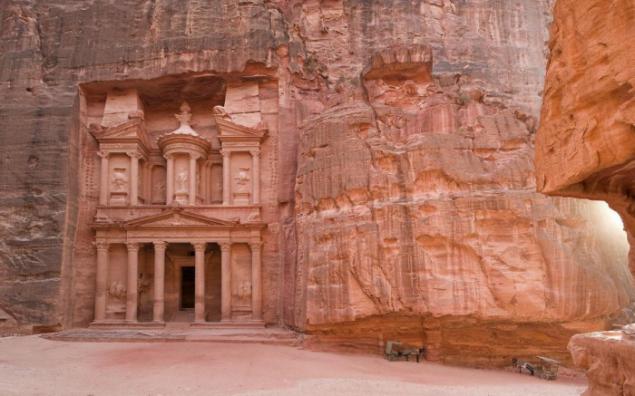
Angkor, Cambodia.
Angkor was the capital of the Khmer Empire from IX to XV century. Today he is one of the most grandiose in size historical sites in the world. The area of this city the temple more than 400 square kilometers, and the splendor of his sculptures of Hindu temples quite staggering.
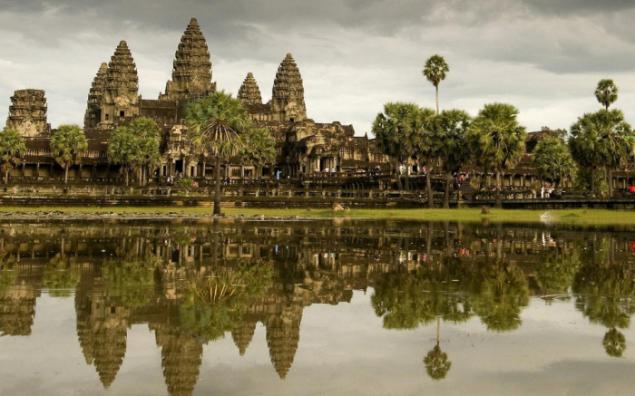
Ciudad Perdida, Colombia.
Ciudad Perdida The name translates from Spanish as "The Lost City." This town is almost 700 years older than the famous Machu Picchu. In 1972, Ciudad Perdida was accidentally discovered by local Cryptstalker. When trade in archaeological treasures from the city acquired a large scale, the Colombian authorities finally became interested in their source and found it. In this area there are constant fighting between government forces and various armed groups, so tourists are pretty much at risk, going even formally proposed routes that guard the Colombian military. The road itself in the Ciudad Perdida is also quite difficult and requires good physical preparation.
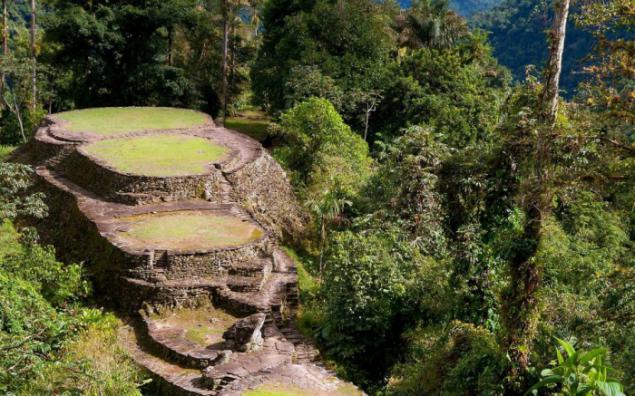
Chichen Itza, Mexico.
Chichen Itza is one of the largest cities of the Mayan civilization. It was founded in the VII century, and in 1194 Mr. residents had left him for unknown reasons. The Spanish conquerors destroyed a huge number of Mayan manuscripts, so archaeologists can not find out the real cause of the decline of the great city.
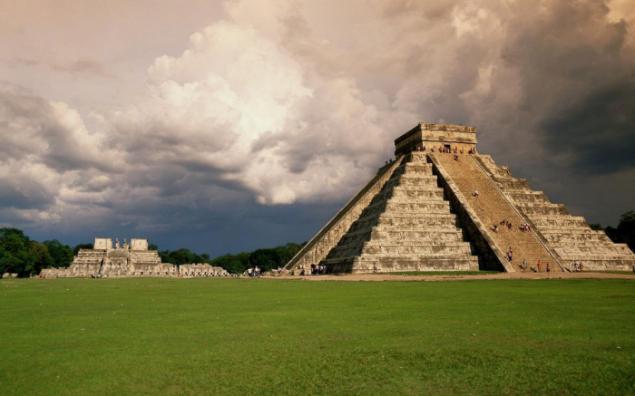
Xanadu, Mongolia.
Xanadu - a summer residence of the legendary Mongol Kublai Khan, who is better known in the West under the name of Kubla Khan. In 1275 Mr. Marco Polo described this place as a magnificent marble palace, decorated with gold. But to have survived alone ruins.
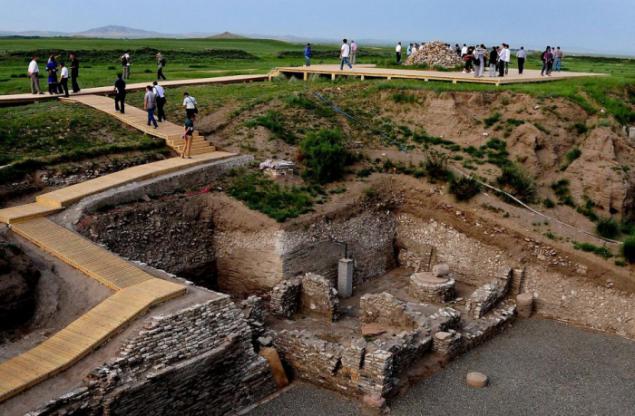
©
Machu Picchu, Peru.
The ancient city of Machu Picchu in 2007, received the title of the New Wonder of the World. The town appeared about 1,440 g, and flourished until the mysterious and sudden disappearance of all its inhabitants in 1532 city conquistadors escaped the attack and destruction, but the people somehow left it.

Ctesiphon, Iraq.
In the period from II to VII century Ctesiphon was the capital of the Parthian Empire first and then Sassanian. Come down to our times brick built Ctesiphon and today amaze with its splendor and size.

National Park Mesa Verde, USA.
The national park Mesa Verde (Colorado) is full of the ruins of ancient cities that were built in the Anasazi Indians VI-XIII centuries. The largest building in the park is considered a great "Rock Palace", attracts every year more than 700,000 tourists. The city was abandoned by its inhabitants around 1300. The reasons why people left their homes, are still unclear, but it has been suggested that the blame prolonged drought.

Tikal, Guatemala.
Tikal - it is one of the largest city-states of the Maya. It was built in the VII century BC, and in the heyday of its population reached 200 thousand people. The history of Tikal was full of dramatic moments, and after numerous wars and uprisings of the people finally left him. It happened at the end of the tenth century. Since then, Tikal is a ghost town.

Great Zimbabwe.
Big or Great Zimbabwe ruins known as the ancient city, located on the territory of the South African state of Zimbabwe. According to archaeologists, the city appeared in 1130 and for three centuries was considered the main shrine of the Shona people. Behind the high stone walls of the city can simultaneously accommodate about 18 000 people. Today, the city walls are one of the most amazing monuments of Great Zimbabwe. They are built without any mortar, and their height reaches five meters.

Mohenjo Daro, Pakistan.
Pertaining to the Indus civilization city with a gloomy title Moenjodaro (which translates as "Hill of the Dead") appeared in the Indus Valley in present-day Pakistan, more than four and a half thousand years ago. He is a contemporary of the pyramids of Egypt and one of the first cities in South Asia. The city flourished for nearly a thousand years, but still, in the end, its inhabitants fled. Archaeologists speculate that the reason for it was an invasion of the Aryans.

Bagerhat, Bangladesh.
This city stands at the confluence of the Ganges and Brahmaputra, was built in the XV century. During his heyday here operated 360 mosques. But over time, Bagerhat was in decline, and it is almost completely absorbed the jungle. Today, part of the city has been cleared, and tours are available to tourists.

Vijayanagar, India.
Once the capital of the Vijayanagar Empire, the mighty, which occupied the entire south of the Indian subcontinent. Today, the site of the city of Victory (as translated Vijayanagar) is a village of Hampi. True, here and today, in addition to the magnificent ruins are still operating and many Hindu temples, including the famous temple Pampapathi that even older than the Vijayanagara.

Ani, Turkey.
Ani - the capital of the ancient Armenian kingdom, standing in modern Turkey. Once the population of this ancient city is more than 100 thousand people, and thanks to the abundance of temples, he was known as a city of 1001 churches. To this day we survived the ruins of many Armenian churches XI-XIII centuries and the Seljuk Palace. But all of these sites are in terrible condition - they live the homeless and their territory careless tourists picnics. The authorities did not exercise due diligence to protect this historical monument.

Thebes, Egypt.
The first human settlements on the territory of this city belong to 3200 BC In 2000 BC Thebes lived about 40 000 people, making them the largest city of the time. Status of the biggest cities in the world Thebes able to retain up to 1000 BC Even today the ruins left by its former splendor, dazzling. The most famous monuments of Thebes - the temple of Luxor, Karnak Temple (which is the largest temple complex of ancient Egypt) and the tomb of Tutankhamun.

Carthage, Tunisia.
Throughout its long history of Carthage was the capital of the different states. First it was the Phoenician state, which is also called Carthage. In 146 BC and the state and the city have been completely destroyed by the Romans, but pretty soon they themselves Romans rebuilt Carthage again. After the fall of Rome, Carthage became the capital of the Kingdom of the Vandals. The final fall of the great city was in the VII century, when the city was destroyed by the Arabs. But still survived to our time a lot of ruins, mostly from the Roman period.

Persepolis, Iran.
The founder of the magnificent city of Persepolis was the Persian king Cyrus the Great. The city was founded around 560 BC For centuries, the city passed from hand to hand, while maintaining its status as the capital and the great city. But during the Arab conquest of Persepolis was completely in ruins. The most famous monument of the city is a huge palace apadana.

Ephesus, Turkey.
It was in this town in the VI century BC It was built by the legendary Temple of Artemis, one of the seven wonders of the world. The city prospered as long as it was near the sea. But when it is gone far from the city walls, trade gradually faded, and with it disappeared, and magnificent city, leaving only ruins.

Palenque, Mexico.
In the III-VIII century Palenque had great political and cultural significance to the Maya civilization. Before our time has survived many magnificent stone buildings belonging to 600-800 years, including the Temple of the Sun, the Temple of the Cross and the Temple of the Inscriptions. The city was abandoned long before the arrival of Columbus, probably as a result of inter-tribal wars.

Pompeii and Herculaneum, Italy.
These two died in the eruption of the city are probably one of the most famous cities of the disappeared. When August 24 79 AD It began a catastrophic eruption of Mount Vesuvius, the majority of residents of Pompeii suddenly overtaken by death, and then the city was completely buried under a layer of volcanic ash multimeter. The residents of Herculaneum was more fortunate - many of them had to leave the city before he disappeared under the hot ashes.

Petra, Jordan.
In the ancient city of Petra stood at the crossroads of important trade routes that brought him untold riches. But over time the Romans mastered the waterway, severely weakened overland trade. Gradually, residents left the city, and it absorbed the sands of the Arabian desert. Today you can see the well-preserved ancient buildings magnificent.

Angkor, Cambodia.
Angkor was the capital of the Khmer Empire from IX to XV century. Today he is one of the most grandiose in size historical sites in the world. The area of this city the temple more than 400 square kilometers, and the splendor of his sculptures of Hindu temples quite staggering.

Ciudad Perdida, Colombia.
Ciudad Perdida The name translates from Spanish as "The Lost City." This town is almost 700 years older than the famous Machu Picchu. In 1972, Ciudad Perdida was accidentally discovered by local Cryptstalker. When trade in archaeological treasures from the city acquired a large scale, the Colombian authorities finally became interested in their source and found it. In this area there are constant fighting between government forces and various armed groups, so tourists are pretty much at risk, going even formally proposed routes that guard the Colombian military. The road itself in the Ciudad Perdida is also quite difficult and requires good physical preparation.

Chichen Itza, Mexico.
Chichen Itza is one of the largest cities of the Mayan civilization. It was founded in the VII century, and in 1194 Mr. residents had left him for unknown reasons. The Spanish conquerors destroyed a huge number of Mayan manuscripts, so archaeologists can not find out the real cause of the decline of the great city.

Xanadu, Mongolia.
Xanadu - a summer residence of the legendary Mongol Kublai Khan, who is better known in the West under the name of Kubla Khan. In 1275 Mr. Marco Polo described this place as a magnificent marble palace, decorated with gold. But to have survived alone ruins.

©






